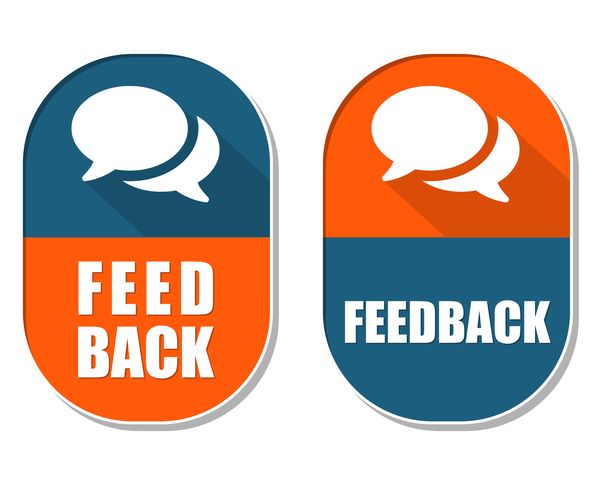Why Customer Reviews Affect Business Psychology. Clever tips
Have you ever wondered why customer reviews have such a lasting impact on businesses, both big and small? As an expert in business psychology, I can confidently shed some light on this prevalent phenomenon. Understanding customer reviews’ role helps navigate the complex world of modern-day entrepreneurship.
Why customer reviews affect business psychology:
Customer reviews affect business psychology because they influence consumer decision-making, establish trust and credibility, and evoke emotional connections. Businesses can harness the power of reviews by encouraging feedback, responding constructively, making informed decisions, and showcasing positive reviews to drive growth and customer satisfaction.

Curious about the impact of customer reviews on a business’ mindset and decision-making? Read on to unearth the psychology behind it, learn how to leverage customer feedback, and transform your business strategies. Stay ahead by understanding what drives customer satisfaction!
Contents
- 1 Impact of Customer Reviews on Business Psychology
- 2 Customer Reviews: Influence on Business Success
- 3 The Role of Consumer Psychology in Business Growth
- 4 The Significance of Customer Reviews for Business Prosperity
- 5 The Importance of Understanding Customer Psychology
Impact of Customer Reviews on Business Psychology
In today’s fast-paced, digital world, consumers have access to a plethora of information before making purchase decisions. Among these sources of information, customer reviews have emerged as an increasingly important factor that influences buyer behavior.
• Understanding the Power of Customer Reviews
To comprehend the profound effect of customer reviews on business psychology, it’s vital to recognize the significance of reviews in the consumers’ decision-making process. According to a study conducted by BrightLocal, 93% of consumers use online reviews to determine which local businesses to utilize.
This compelling statistic emphasizes the need for businesses to pay close attention to customer feedback and leverage reviews to their advantage.
– Trust and Credibility
A well-established fact in psychology is that humans are inherently social beings. We rely on the opinions and experiences of others to navigate through our lives. Customer reviews serve as social proof for prospective buyers, which in turn, helps foster trust in a particular business or product.
Additionally, positive reviews can help establish credibility and enhance brand image, ultimately leading to increased customer acquisition and retention.
– Emotional Triggers and Decision-Making
Consumer decision-making is heavily influenced by emotions. Reviews packed with emotive language and personal anecdotes can lead to empathetic connections between potential buyers and existing customers.
This emotional connection can significantly sway the decision-making process, making the prospect more likely to engage with the business, purchase a product, or recommend it to others.
• Leveraging Customer Reviews for Business Success
Understanding the psychological drivers that influence the impact of customer reviews is just the first step. To fully capitalize on the potential of reviews, businesses must actively employ strategies that allow them to make the most of this powerful tool.
– Encourage Customer Feedback
Many customers are eager to share their experiences but may not be inclined to do so without a gentle nudge. Businesses should actively solicit feedback through multiple channels such as email, social media or even in-person requests.
Offering incentives like discounts or giveaways can further encourage customers to leave reviews. Remember, the more reviews you have, the better-equipped you are to understand consumer sentiment and drive positive brand perception.
– Respond to Reviews Constructively
Actively responding to customer reviews, both positive and negative, is a clear indication that a business values customer feedback and is committed to continuous improvement.
A gracious and professional reply to negative reviews can help salvage a damaged relationship and portray a positive image to prospective customers. Likewise, acknowledging positive reviews conveys gratitude and further strengthens customer relationships.
– Utilize Reviews to Inform Business Decisions
Customer reviews are a treasure trove of valuable insights. Analyzing trends and reviewing patterns can help identify improvement areas and highlight successful aspects of the business.
Using reviews to make data-driven decisions can lead to informed improvements that cater to customer expectations and ultimately drive business growth.
– Showcase Positive Reviews
One of the best ways to capitalize on positive customer reviews is by featuring them prominently on your website, social media profiles, or marketing materials. This serves as social proof for potential customers and helps reinforce your brand image as one that is committed to customer satisfaction.
• Conclusion
In conclusion, the power of customer reviews in shaping business psychology cannot be underestimated. The influence of reviews on customer perception, brand image, and purchasing decisions is enormous.
By understanding the psychological factors at play and actively implementing strategies to harness reviews, businesses can continually adapt and strive for success in today’s competitive landscape.
Customer Reviews: Influence on Business Success
In today’s era of digitalization, online customer reviews have become an essential part of determining the success or downfall of a business.
• The Power of Customer Reviews
Customer reviews serve as a digital word-of-mouth marketing strategy. The opinions and experiences shared by consumers directly affect the brand image and influence the purchasing decisions of potential customers.
In fact, a study conducted by Dimensional Research noted that 90% of the respondents claimed positive reviews influenced their purchasing decisions, while 86% were swayed by negative reviews.
– Establishing Trust and Credibility
A vast number of positive customer reviews amplify the reliability and credibility of a business. When potential customers notice numerous positive reviews, they are more likely to trust the product or service and consider making a purchase.
– Boosting Sales and Revenue
Positive customer reviews often increase conversion rates, as buyers tend to choose products or services with higher ratings. Buyers usually compare different options based on their ratings and reviews before making a purchase, boosting sales for businesses that maintain high ratings.
– Enhancing SEO Efforts
Search engines like Google often prioritize websites with positive reviews, considering them more relevant and useful to users. High-quality reviews with appropriate keywords can help improve the website’s search engine ranking and visibility, thus driving more traffic to the site.
• The Negative Impact of Poor Reviews
While positive customer reviews can result in significant growth for a business, negative reviews can lead to various negative consequences.
– Damaging Brand Reputation
Negative reviews often harm a business’s reputation, as potential customers may be deterred from making a purchase. In some cases, a single negative review can cause considerable damage if it goes viral on social media or other online platforms.
– Loss of Sales and Revenue
Decreased sales are an obvious outcome of negative reviews. As customers sway away from products or services with unfavorable reviews, businesses run the risk of losing sales and revenue to competitors with better ratings.
– Difficulty in Recruitment
Businesses with negative reviews may even face difficulties in attracting and retaining top talent.
Job seekers commonly research potential employers before applying for or accepting job offers. If they come across negative reviews about the company culture or work environment, they may become increasingly cautious about joining the organization.
• Strategies for Managing Customer Reviews
Consider implementing the following strategies to effectively manage customer reviews and ensure they positively impact the business.
– Actively Encourage Reviews
Request customers to share their feedback, ratings, or reviews on various online platforms. This can be done through follow-up emails, on-site pop-ups, or social media interactions. The more positive reviews your business accumulates, the better your online reputation will be.
– Respond to Reviews
Make a consistent effort to respond to both positive and negative reviews. Thank customers for their positive feedback, and address negative reviews by offering a resolution or apology, showing that you care about their experience.
– Address the Root Causes
Identify common themes in the negative reviews and work towards improving those areas. Customer reviews can serve as valuable feedback, assisting businesses in identifying areas where they might need vital improvements.
– Implement Reputation Management Tools
There are various tools available that can help with managing and monitoring customer reviews across different platforms. By utilizing such tools, businesses can efficiently keep an eye on their online reputation and promptly respond to any concerns.
• Conclusion
Customer reviews significantly impact businesses, affecting brand reputation, sales, and even recruitment. Active management and improvement of customer reviews should be an essential part of any business strategy.
By encouraging positive reviews, addressing negative issues, and consistently monitoring online reputation, businesses can leverage the power of customer reviews to their advantage, ultimately boosting success and growth.
The Role of Consumer Psychology in Business Growth
Understanding consumer psychology is imperative for businesses to succeed in today’s competitive market.
• The Role of Perception in Consumer Behavior
Perception plays a crucial role in consumer behavior. It is the process through which consumers interpret information about products and make decisions based on their perceptions. Businesses should be aware of the factors that influence consumers’ perceptions, such as:
- Product positioning: Effective product positioning can create a positive perception by emphasizing the product’s unique value proposition and benefits.
- Packaging and design: A visually appealing packaging or design can attract consumers’ attention and influence their decision-making process.
- Price: The price of a product may have a psychological impact on consumers. For instance, a higher price may be associated with better quality, while a lower price may signal lower quality.
For more information on how perception influences consumer behavior, visit this insightful article from Kellogg School of Management.
• The Role of Emotions in Consumer Decision-Making
Emotions play a significant role in consumer decision-making. They can influence consumer behavior either positively or negatively. Some key emotional factors that businesses should consider include:
- Brand association: Creating positive emotional associations with a brand can lead to brand loyalty and customer retention. This can be achieved through effective advertising, memorable slogans, and other marketing strategies.
- Fear: Fear can lead to the adoption of new products or services, such as insurance policies or security systems. However, it is important not to overuse fear in marketing strategies, as it can also have negative consequences.
- Pleasure: Consumers often indulge in purchases that evoke positive emotions, such as joy or pleasure. Offering an enjoyable shopping experience or creating appealing marketing campaigns can tap into these emotions.
For a deeper understanding of emotions’ role in consumer decision-making, check out this article from Harvard Business Review.
• Consumer Memory and Its Effect on Business
Consumers’ memories play a vital role in retaining information about products, brands, and experiences. Businesses can use this to their advantage by implementing strategies that aid recall and recognition, including:
- Creating memorable experiences: Positive experiences tend to be etched in consumers’ memories, making it more likely for them to return in the future.
- Repetition and consistency: Consistently exposing consumers to a brand or product message increases the likelihood of recall.
- Use of mnemonics: Catchy jingles and slogans can help consumers remember a brand or product effortlessly.
Explore the impact of consumer memory on marketing in this research article from the Journal of Consumer Research.
• Social Influences on Consumer Behavior
Social factors play a significant role in shaping consumer behavior. Key social influences to consider include:
- Word of mouth: Positive word of mouth can significantly impact a business’s reputation and sales. Encourage customers to share their experiences through reviews and testimonials.
- Social norms: Consumers are influenced by societal norms and trends. Businesses should be aware of these factors and cater to consumers’ desires to conform.
- Reference groups: Consumers tend to make decisions based on the opinions and actions of their reference groups, which can include family, friends, or colleagues.
To explore the power of social influence in driving consumer behavior, read this insightful article from Forbes.
• Consumer Motivation and Its Impact on Business
Understanding consumer motivation can help businesses meet customer needs and foster brand loyalty. Some strategies to tap into consumers’ motivations are:
- Understanding the hierarchy of needs: Align the product or service offering with consumers’ basic and higher-order needs such as safety, belongingness, or self-esteem.
- Goal-oriented marketing: Frame marketing messages in a way that speaks to consumers’ goals, which can include aspirations, desires, or values.
- Leveraging incentives: Offering incentives, such as discounts or loyalty programs, can encourage purchase behavior and increase customer retention.
For more insights on the role of consumer motivation in decision-making, refer to this research article from Ingenta Connect.
• Key Takeaways and Recommendations
Understanding consumer psychology is crucial for businesses to succeed in today’s competitive market. Some key recommendations for leveraging consumer psychology to enhance business performance are:
- Be aware of the factors that influence perception and effectively position your product or brand in the market.
- Understand and tap into the emotions that drive consumer behavior.
- Develop strategies that aid recall and recognition through memorable experiences and consistent messaging.
- Leverage the power of social influence to drive brand loyalty and growth.
- Understand consumer motivation and develop marketing strategies that resonate with consumer goals and aspirations.
By implementing these recommendations and effectively leveraging consumer psychology, businesses can strengthen their market presence, drive customer engagement, and facilitate long-term success in their respective industries.
The Significance of Customer Reviews for Business Prosperity
Customer reviews can make or break a business in today’s digital age. They hold a significant role in shaping public opinion and influencing purchasing decisions.
• Enhancing Credibility and Trust
Online reviews serve as a critical gauge for potential customers assessing a product or service. According to a survey by Pew Research Center, 82% of adults in the U.S. consult online ratings and reviews when purchasing.
When consumers see the positive feedback from others who have already experienced a product first-hand, it establishes credibility and trust in the brand.
Recommendation: Regularly encourage satisfied customers to leave their feedback to help build and maintain a strong online presence.
• Improving SEO Performance
Search engines like Google consider customer reviews while determining search engine rankings. A business with more reviews increases the chances of ranking higher in search results. Moreover, online reviews generate essential keywords related to a brand, boosting its visibility to relevant audiences.
Recommendation: Make sure to include review submission platforms like Google My Business and Yelp in your marketing strategy to improve your business’s online visibility.
• Gaining Valuable Insights and Feedback
Customer reviews can help businesses identify areas that need improvement. By examining both positive and negative feedback, they can detect patterns, trends, and opportunities for growth.
These insights can then be used for refining strategies, enhancing customer service, and improving products or services to meet the ever-evolving demands of the market.
Recommendation: Implement a systematic approach to analyzing customer reviews and regularly update operations based on the insights gained.
• Increasing Conversions and Sales
Positive reviews can directly impact a business’s bottom line. According to a study conducted by the University of York, there is a significant relationship between the volume of online reviews and product sales.
When customers see that others have had a satisfactory experience with a brand, they are more likely to make a purchase.
Recommendation: Actively monitor and address customer issues to help maintain a high overall rating, which can translate into increased conversions and sales.
• Boosting Customer Loyalty and Retention
A business that listens to and engages with its customers through reviews fosters long-term loyalty. Responding to customer feedback, whether positive or negative, shows a brand’s commitment to addressing its needs and concerns.
This engagement can help build a strong bond between customers and the business, increasing the likelihood that they will return in the future.
Recommendation: Regularly respond to customer reviews, thank them for their feedback, and showcase your commitment to providing excellent customer service.
• Enhancing Word-of-Mouth Marketing
Positive customer reviews can lead to organic word-of-mouth marketing, a powerful tool that can significantly impact a business’s growth. Recommendations from family and friends carry great weight in influencing purchasing decisions.
Thus, fostering satisfied customers and encouraging them to share their positive experiences with others can help drive more traffic to a business.
Recommendation: Develop a referral program or offer incentives for customers to share their experiences with friends and family or on social media platforms.
In conclusion, customer reviews are a goldmine of opportunities for businesses looking to stay ahead of the competition.
By harnessing the power of online feedback and using it strategically, businesses can enhance their credibility, improve their online presence, gain valuable insights, and ultimately, drive long-term growth and success.
The Importance of Understanding Customer Psychology
Understanding customer psychology is a critical aspect of any business’s success. It allows businesses to meet customer needs more effectively, leading to increased sales, customer loyalty, and overall growth.
• The Role of Emotions in Decision Making
Emotions play a crucial role in customers’ decision-making processes. According to research by the American Psychological Association, emotions have a significant impact on individuals’ choices and behaviors.
When a customer feels a strong emotion, be it positive or negative, this affects the likelihood of their making a purchase or engaging with a brand.
A positive experience often leads to a positive association with a brand and vice versa.
Knowing how to tap into and influence customers’ emotions can help businesses create more personalized and effective marketing campaigns, improving customer satisfaction and loyalty.
• Segmentation and Personalization
In order to better understand and meet customer needs, businesses should begin by segmenting their target audience. This process involves breaking down a broader customer base into smaller, more manageable groups based on factors such as demographics, geographic location, and psychographic traits.
Tailoring marketing campaigns and offers to specific segments can significantly improve the chances of conversion.
One successful approach to personalization involves analyzing customer data to determine patterns and trends in individual preferences and behaviors. By leveraging this data, businesses can craft tailored marketing messages and offer that resonates with their target audience and improve engagement.
• The Power of Social Proof
Social proof plays a significant role in influencing customer behavior. It refers to the tendency of individuals to assume that the actions of others reflect the correct behavior for a given situation.
In the context of consumer psychology, this means that a customer is more likely to engage with a product or service if they perceive it to be popular or endorsed by other users.
Positive reviews, testimonials, and influencer endorsements can all contribute to the perception of social proof.
Businesses can take advantage of this phenomenon by encouraging customers to leave positive reviews, showcasing user-generated content, and partnering with trusted influencers or industry experts.
• Cognitive Biases and Heuristics
Cognitive biases and heuristics are shortcuts in human decision-making processes that often lead to irrational outcomes. Understanding these psychological principles can help businesses develop more effective marketing campaigns and sales techniques.
- Loss aversion: People tend to prefer avoiding losses to acquiring gains. Businesses can leverage this bias by offering limited-time discounts, promoting free trials, and emphasizing the potential loss of not using a product or service.
- Anchoring: The first piece of information encountered shapes our subsequent judgments. For example, listing a higher-priced item next to a lower-priced one can make our item appear more affordable. Businesses can use anchoring in pricing strategies or emphasize the benefits of their products relative to others.
- Framing: The way information is presented can significantly influence decision-making. For instance, emphasizing positive aspects of a product or service can create a more appealing offer to customers. Businesses can experiment with different messaging techniques to determine which resonates best with their audience.
By being aware of these cognitive biases and heuristics, businesses can craft communications and offer that resonate more effectively with their customers.
• Building Trust and Relationships
Customer trust is critical in retaining loyal customers and generating positive word-of-mouth. By understanding customer psychology, businesses can work to create secure and lasting relationships with their customers.
- Transparency: Openly sharing information about business practices and products can foster trust and credibility.
- Consistency: Delivering a consistent experience throughout the customer journey can go a long way in building trust.
- Active communication: Engaging with customers through various channels, such as social media, email, and live chat, can help address concerns and build community.
• Conclusion
In an increasingly competitive landscape, understanding customer psychology is essential for businesses looking to differentiate themselves and foster lasting, valuable customer relationships.
Businesses can craft more engaging and effective marketing campaigns that resonate with their target audiences by exploring emotional triggers, segmentation and personalization, social proof, heuristics and cognitive biases, and trust-building strategies.
Ultimately, leveraging customer psychology can significantly benefit businesses in the form of increased sales, improved customer loyalty, and continued growth.







